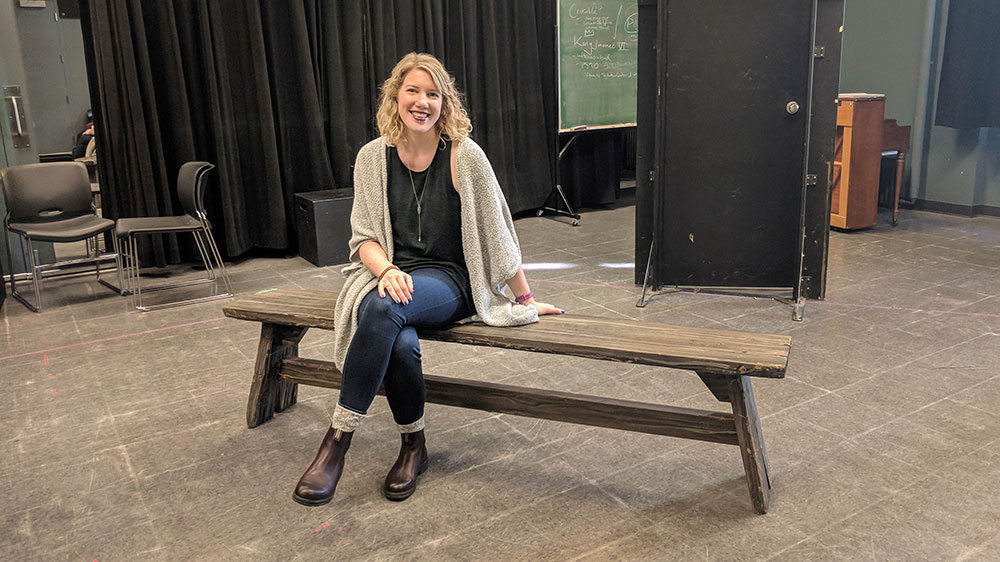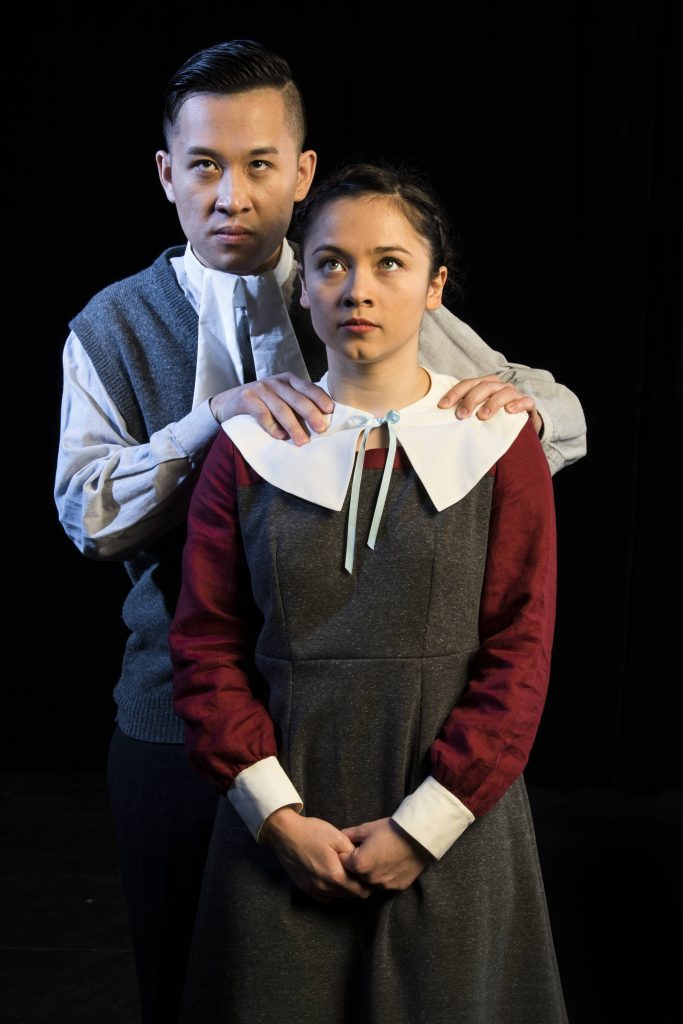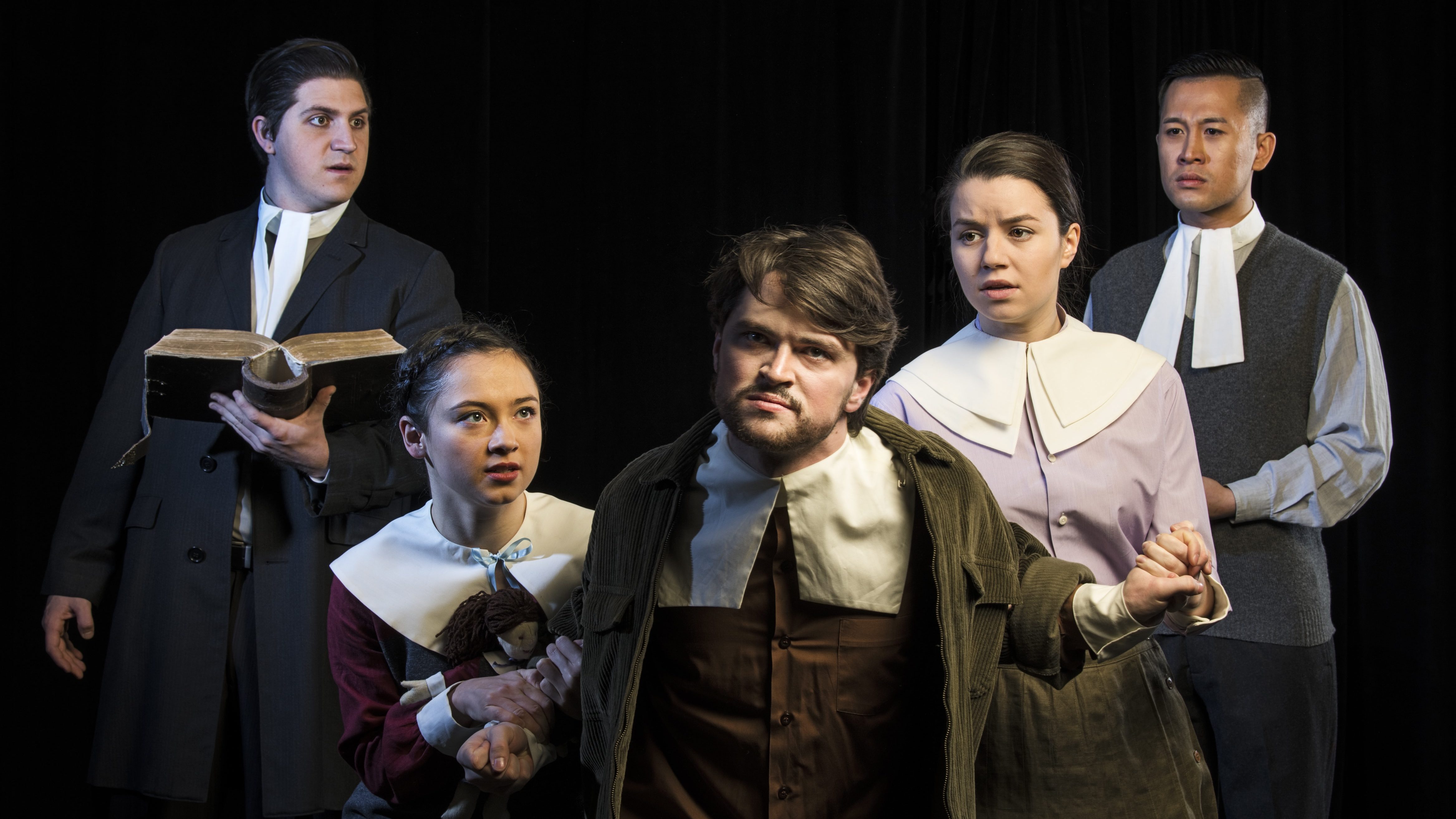“People go to the theatre to be moved, to change their perspective on things. To be in a room and feel either intellectually or emotionally moved in some way by what someone else in that room is doing… I think that has a great potential to create change, even if it’s just with one person.” – Jessica Anne Nelson
The Crucible is UBC Theatre and Film’s latest production. This play is an example of how theatre can be a medium to reflect on timely issues and encourage others to consider challenging topics.
Jessica Anne Nelson, UBC MFA Directing student and director of The Crucible, came to the MFA program with a desire to look at stories that show gender in different and complex ways:

“My advisor in my first term here recommended that I read The Crucible again, as I hadn’t read it since high school. When I read it, first I was riveted by, and so interested in how the characters behave when things happen that they don’t understand. I remember thinking that it was unfair that Abigail is seen by so many as an antagonist, when really she’s a 17 year old girl who falls in love with a man in his 30s. People seem to view The Crucible in one way in my experience, and I really wanted to bring this play to the stage and be aware of the realities of the girls in this play, who were so oppressed at that time.”
The Crucible, written in 1952 by Arthur Miller, is an allegory for the time it was written in. The 1950s were a turbulent time or the United States, with the “Communist scare” reaching its height.
“He is using the 1692 Salem Witch Trials and the witch hunt that happened in America as an allegory for America’s hunt for communists. Arthur Miller himself was called in to name people he knew who were communists, and he refused to name anyone.”
But despite the fact that it was written in a time very different from present day, Jessica still sees the show as relevant.
“What I found so interesting with The Crucible is that Arthur Miller has written quite strong female characters who are saying ‘I don’t want to be pushed down and oppressed anymore, and I want to push back against that’. Immediately after Trump was elected you saw instances where people who had felt like they had been pushed down before now could say somewhat racist things to each other… But with that, there have been so many people standing up and saying ‘no, I won’t be treated that way again – it’s against human decency, against my human rights.'”
 Performing this play in the present day political climate has presented some challenges that Jessica and the BFA actors have had to wrestle with.
Performing this play in the present day political climate has presented some challenges that Jessica and the BFA actors have had to wrestle with.
“In the context of the Me Too movement and Time’s Up, this play can actually be seen as quite harmful. It’s about young girls wrongfully accusing women, who become victims and end up being killed. It’s created these really tenuous and difficult circumstances for us when we talk about it… In no way do I want people to come see this show and point at it as an example where you shouldn’t believe victims. So, I’ve told the actors that they have to 100% believe what their characters are saying, because if they don’t, it takes away any integrity from their position in the story.
“It was a little easier, I think, in the 1950s when it was really just an allegory for the communism scare… Now it has all these added layers of feminism and equal rights and how we treat people different from ourselves.”
In addition to navigating the complexities that this show presents, and reflecting on the social issues that it addresses, Jessica has been working to differentiate this show from past incarnations:
“I’ve tried really hard to modernize the show in particular ways, with more modern costumes, and a set that is not naturalistic or realistic. It is instead very symbolic of the progression of the play. A lot of the time when you hear about other productions, they are so entrenched in the 1692 time period. I feel like they often end up being the same cookie-cutter version of the play, which is what I’ve been fighting against.”
While the show does feature some younger characters, there are many older characters who will be played by much younger actors. For Jessica, the experience of working with students and navigating this character-actor age gap has presented some valuable learning opportunities.

“The age of the actors really hasn’t been in any way a hindrance. There is something really wonderful about working with ‘student actors’ because they really want to do good work, and learn and become better. It creates a really positive, open atmosphere. I’m also here as a student, to learn, because I wanted to better myself, so in that way, [the cast and I] are still student-to-student… When it comes to the older characters, we have worked hard to distill what qualities and values that character has, in order to allow that actor to play the part truthfully.”
When you come and see The Crucible, Jessica has some words of wisdom for you: “Expect to feel uncomfortable. It’s not a comfortable play, the subject matter isn’t comfortable. To think that you are going to come and have a quick 30 minute show that you can watch while playing a game on your phone… This is not that.”